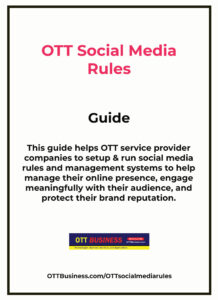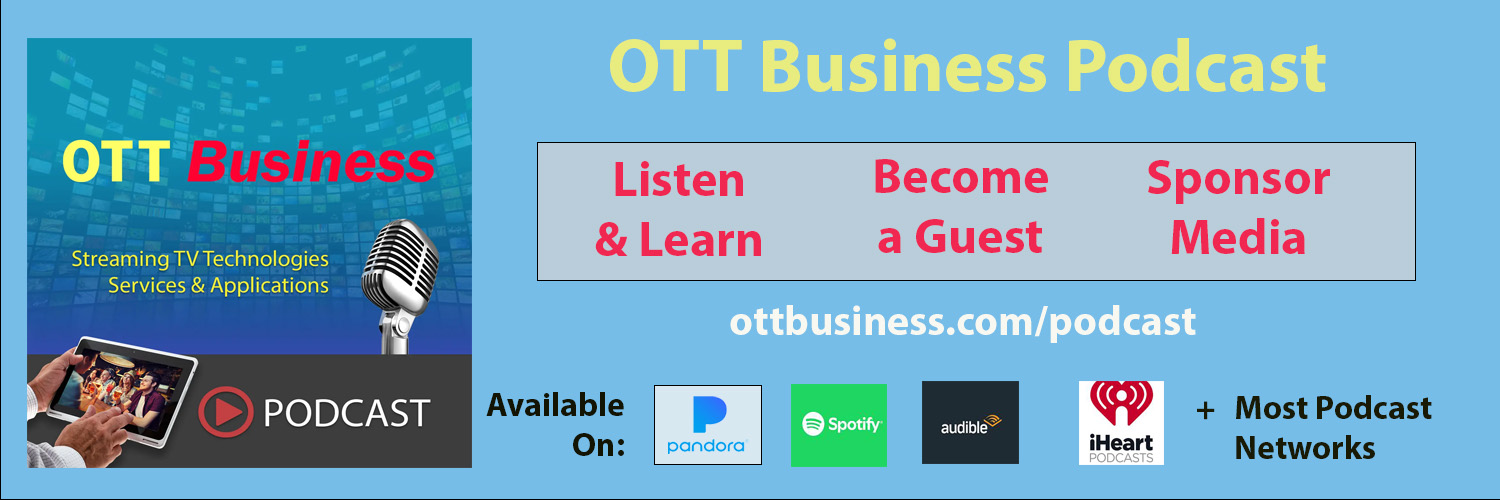This guide helps OTT and streaming TV service provider companies to setup and run social media rules to help manage their online presence, engage meaningfully with their audience, and protect their brand reputation. These rules encompass content guidelines to ensure quality and relevance, engagement rules for building community relationships, and privacy policies to safeguard user data. Legal regulations and compliance policies prevent legal issues, while crisis management protocols address negative publicity swiftly. Consistent brand voice and messaging reinforce brand identity, and robust security measures protect against unauthorized access. Structured content approval processes ensure content accuracy, while employee social media use guidelines maintain professional conduct. Advertising and promotions rules ensure ethical practices, and analytics and reporting help measure success. Finally, community management fosters a positive and engaged user base, enhancing customer loyalty and trust.
OTT and Streaming TV Social Media Rules Guide
Introduction
This guide is designed to help ensure that our presence on social media platforms is effective, consistent, and compliant with legal and ethical standards. By following these rules and guidelines, we aim to maintain a positive brand image, engage effectively with our audience, and adhere to all relevant regulations.
Content Guidelines
- Quality and Tone: All content must be high-quality, professional, and relevant to our brand and audience.
- Relevancy: Posts should align with our brand values, services, and the interests of our target audience.
- Copyright and Intellectual Property: Use only content that we own or have permission to use. Always credit third-party content appropriately.
- Third-Party Content: Ensure that third-party content used does not violate copyright laws and is relevant to our brand.
- Brand Image: All content must align with our brand image and messaging to maintain consistency and trust.
Engagement Rules
- User Interaction: Respond to comments and messages promptly and professionally.
- Handling Complaints: Address complaints with empathy and provide solutions promptly.
- Influencer Engagement: Interact with influencers and other brands professionally, fostering positive relationships.
- Community Building: Engage with users regularly to build a loyal and active community.
Privacy and Data Protection Policies
- Data Collection: Collect only the data necessary for engagement and service improvement.
- Data Storage: Store user data securely in compliance with GDPR, CCPA, and other regulations.
- Data Usage: Use collected data responsibly and only for the intended purposes.
- User Consent: Ensure that users are informed about data collection and have given consent.
Legal Regulations and Compliance
- Advertising Standards: Ensure all advertisements comply with relevant advertising laws.
- Consumer Protection: Adhere to consumer protection laws in all social media activities.
- Broadcasting Regulations: Follow all broadcasting regulations applicable to our content.
Crisis Management
- Immediate Response: Have a plan for immediate response to negative publicity or social media crises.
- Communication Strategy: Develop clear communication strategies for different types of crises.
- Escalation Procedures: Establish procedures for escalating issues to appropriate team members.
Brand Voice and Messaging
- Consistency: Maintain a consistent brand voice and messaging across all platforms.
- Tone and Language: Use tone and language that reflect our brand identity.
- Key Messages: Ensure that all key messages align with our company’s goals and values.
Security Measures
- Password Management: Use strong, unique passwords for all social media accounts.
- Two-Factor Authentication: Enable two-factor authentication for added security.
- Security Protocols: Establish protocols for dealing with security breaches promptly.
Content Approval Processes
- Creation and Review: Follow a structured process for creating and reviewing content.
- Approval: Ensure all content is approved by designated team members before publishing.
- Compliance: Verify that all content complies with company standards and regulations.
Employee Social Media Use
- Personal Use Guidelines: Provide clear guidelines for employees on personal social media use.
- Company Matters: Prohibit discussing confidential company matters on personal accounts.
- Representation: Ensure employees understand how to represent the company positively.
Advertising and Promotions
- Compliance: Ensure all ads and promotions comply with advertising standards.
- Disclosure: Clearly disclose any sponsored content.
- Fairness: Ensure all promotions are fair and transparent.
Analytics and Reporting
- Performance Metrics: Track and report on key performance metrics regularly.
- Frequency: Establish a regular schedule for reporting social media performance.
- Tools: Use reliable tools for social media analytics to gather accurate data.
Community Management
- Moderation: Moderate discussions to maintain a positive and inclusive environment.
- User-Generated Content: Handle user-generated content appropriately, ensuring it aligns with our guidelines.
- Fostering Engagement: Encourage positive interactions and engagement within the community.
To get the full version of this document, please enter your information below.


